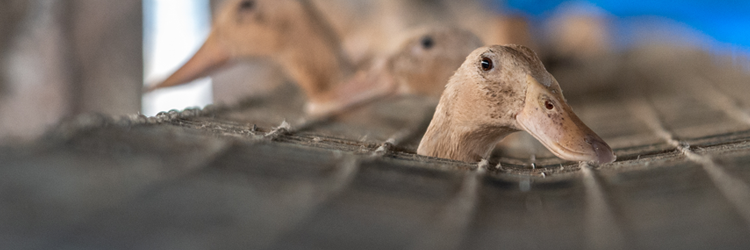Campaign Spotlight
Stop the Cruelty Behind Pork: Groups urge the end of live pig auctions
Taiwan's live pig auction system subjects the animals to extreme cruelty and abuse. The brutal mistreatment endured by approximately 6 million pigs annually in Taiwan before slaughter, including violent electric shocks, whippings, metal branding, and hooking of the snout or dragging by the anus while the animals are still alive.
EAST stages stand-in on presidential boulevard in campaign for battery cage ban
Hundreds of activists stood in the space of an A4 sheet of paper in front of Taiwan's presidential office.
Latest News
Search
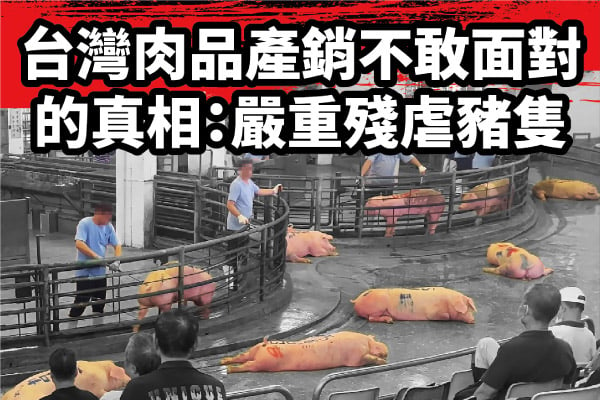
Stop the Cruelty Behind Pork: Groups urge the end of live pig auctions
Taiwan's live pig auction system subjects the animals to extreme cruelty and abuse. The brutal mistreatment endured by approximately 6 million pigs annually in Taiwan before slaughter, including violent electric shocks, whippings, metal branding, and hooking of the snout or dragging by the anus while the animals are still alive.
Survey finds majority of Taiwanese want laws to better protect animals used for food
Taiwan's first survey of attitudes towards animals used for food has uncovered strong support for animal welfare.
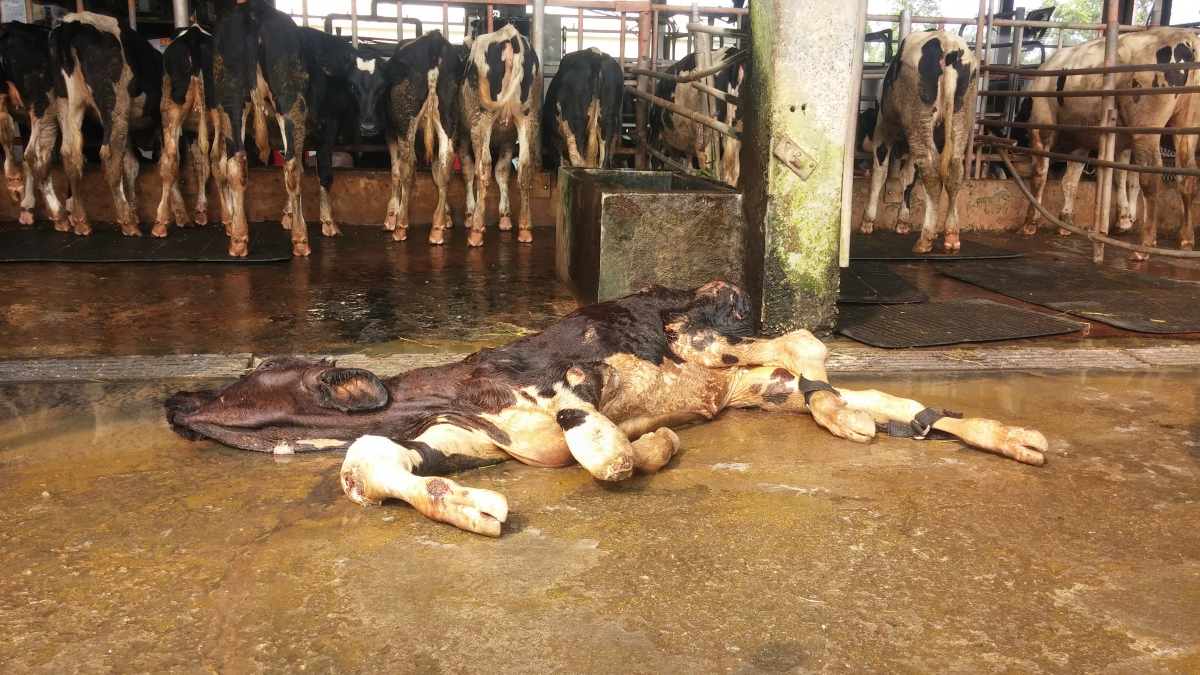
Council of Agriculture promises guidelines for sick and injured farmed animals after accusations of inhumane neglect
The Council of Agriculture made the commitment at a press conference held by EAST and legislator Chen Ting-Fei.
Critics condemn government failure on blatant Pigs of God animal abuse
EAST has filed a formal complaint to call on the Taoyuan City government to enforce the Animal Protection Act.
What is Taiwan's Pigs of God weighing contest?
We explain the truth behind the pig-weighing contest.
Nothing divine about pig-fattening
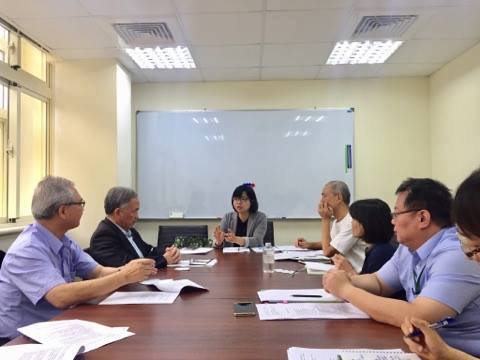
Taiwan's largest pork producer unveils historic pig welfare commitments
Taiwan's largest pork producer, Taisugar, announced a set of unprecedented commitments to improve the welfare of pigs on its Taiwanese farms.
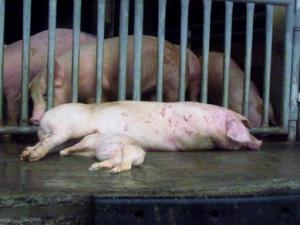
EAST urges phase-out of live pig auctions in Taiwan
Currently, most pork consumption in Taiwan involves the live auction of pigs. This outdated system poses serious animal welfare concerns and hinders the modernization of Taiwan’s pork industry. The severe stress experienced by these animals can adversely affect meat quality, pose food safety risks, and remove incentives for farmers to adopt better farming practices.

Stop the Cruelty Behind Pork: Groups urge the end of live pig auctions
Taiwan's live pig auction system subjects the animals to extreme cruelty and abuse. The brutal mistreatment endured by approximately 6 million pigs annually in Taiwan before slaughter, including violent electric shocks, whippings, metal branding, and hooking of the snout or dragging by the anus while the animals are still alive.
Survey finds majority of Taiwanese want laws to better protect animals used for food
Taiwan's first survey of attitudes towards animals used for food has uncovered strong support for animal welfare.

Council of Agriculture promises guidelines for sick and injured farmed animals after accusations of inhumane neglect
The Council of Agriculture made the commitment at a press conference held by EAST and legislator Chen Ting-Fei.
Critics condemn government failure on blatant Pigs of God animal abuse
EAST has filed a formal complaint to call on the Taoyuan City government to enforce the Animal Protection Act.
What is Taiwan's Pigs of God weighing contest?
We explain the truth behind the pig-weighing contest.
Nothing divine about pig-fattening

Taiwan's largest pork producer unveils historic pig welfare commitments
Taiwan's largest pork producer, Taisugar, announced a set of unprecedented commitments to improve the welfare of pigs on its Taiwanese farms.

EAST urges phase-out of live pig auctions in Taiwan
Currently, most pork consumption in Taiwan involves the live auction of pigs. This outdated system poses serious animal welfare concerns and hinders the modernization of Taiwan’s pork industry. The severe stress experienced by these animals can adversely affect meat quality, pose food safety risks, and remove incentives for farmers to adopt better farming practices.

